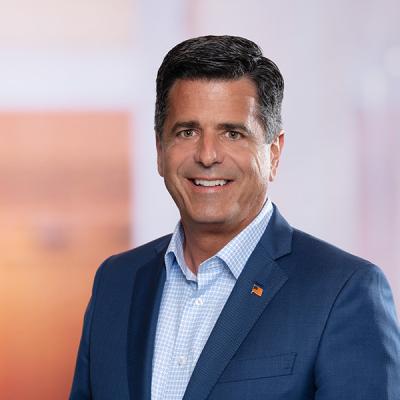FY2017 Massachusetts Budget Update: The Senate Budget
The Massachusetts Senate voted unanimously to pass its FY2017 state budget just before midnight on Thursday, May 26. The spending plan, which totals $39.558 billion, spends $60 million more than Governor Baker’s proposal and $50 million more than the House plan approved last month.
Over the course of three days of debate, Senators considered 1,167 amendments — a 24% increase over the number proposed last year — to the budget approved by the Ways and Means Committee, and its Chairwoman, Senator Karen Spilka. The approved amendments added $61.3 million to the Ways and Means plan. Governor Baker expressed concern over the high number of policy riders added to the Senate budget that were not directly related to state spending.
Without calling for any new taxes or fees, the Senate budget includes significant investments in education spending and allocates additional funds to address the state’s opioid abuse crisis. Like the House budget, the Senate plan sets an expiration date for the hospital tax assessment and brings Massachusetts in compliance with the federal Real ID Act. Budget highlights include:
Health Care
- Like the House budget, the Senate budget includes a sunset date for the new $250 million hospital tax assessment. The tax assessment would expire on October 1, 2022.
- The budget allocates $15 million in state funding to the Health Safety Net (HSN), partially restoring the state’s $30 million commitment to the program. Without the funding, the Health Safety Net funding shortfall is estimated to be $100 million, with much of this deficit being borne by hospitals. Additionally, the Senate voted to delay HSN eligibility changes until after April 1, 2017.
- Senators approved an amendment creating a task force to examine the patient safety issues related to insurer-forced “white bagging/brown bagging” of cancer and chronic disease medications.
- An adopted amendment requires MassHealth to reimburse nursing homes for up to 20 medical and 10 non-medical leave of absence days.
- In an attempt to address unwanted price variation among hospitals, the budget diverts $5 million from the Center for Health Information and Analysis’ budget in FY2017 and $10 million in the following four years, to a new “Community Hospital Reinvestment Trust Fund,” which will distribute funding to hospitals with relative prices below 120% of the statewide median price. This measure was one component of an overall agreement struck among state leaders, the SEIU, and state hospitals to avoid a ballot question this November on hospital price variation.
- An approved amendment designates dental hygiene practitioners as mid-level professionals akin to a physician assistant on a medical team. Senator Harriette Chandler, who proposed the amendment, said that this would increase dental access for vulnerable populations and lower overall health care spending.
Public Health & Human Services
- As part of the state’s ongoing efforts to address the opioid abuse crisis, $136.4 million is allocated for substance abuse treatment, including 150 new residential treatment beds.
- Insurance companies were barred from using gender as a rating factor when determining the cost of disability insurance. The approved amendment, proposed by Senator Jason Lewis, only addresses disability insurance purchased on an individual market.
- Under an approved amendment sponsored by Senators Jason Lewis and Vinny deMacedo, veterans who qualify to access medical marijuana through the state’s dispensary program are no longer required to pay annual registration fees.
- The budget includes $223.5 million for the Department of Children and Families, enough to hire 100 new social workers and 125 social worker technicians.
Education & Local Aid
- Senators increased education aid to local schools by $116.1 million compared to last year, providing $4.6 billion overall.
- The Senate increased funding for UMass by $20.5 million, or 1.5%, and for the state’s community colleges and public universities by $24.4 million, or 1%.
Transportation
- An amendment was approved by a 34 to 5 vote capping future MBTA fare increases at five percent every two years. This measure would not affect the average 9.3% T fare increase set to go into effect July 1.
- The Senate adopted an amendment bringing Massachusetts into compliance with the federal Real ID Act, an anti-terrorism initiative which requires states to begin issuing secure forms of identification that may replace the current driver’s licenses of many residents. New licenses would require an applicant to show proof of citizenship or lawful status in the United States. Governor Baker filed legislation last October bringing Massachusetts into compliance with the law, and the House included a similar measure in its budget.
Funding Sources
- Like the House budget, the plan does not add any new taxes or fees.
- 31 amendments involving tax modifications were ruled unconstitutional and removed from consideration at the beginning of the Senate’s budget debate. Senate President Stan Rosenberg said these amendments were “money bills” which under the state constitution, must originate in the House. The discarded amendments would have abolished the estate tax, created exemptions under the gas tax, established a workforce housing production program, increased the earned income tax credit, and increased the MBTA commuter tax deduction, among other provisions.
Other Notable Provisions
- The Senate approved an amendment, proposed by Senator James Timilty, banning the construction of pipelines within 1,000 feet of a residential neighborhood, a school, or a senior center. Senator Ben Downing, who is leading efforts to craft comprehensive energy legislation, questioned the constitutionality of this measure, citing federal preeminence over state laws in energy project approvals.
- In a move cheered by environmental advocates, the Senate voted to significantly curb the use of paper and plastics bags across the state by adopting an amendment banning single-use carryout bags at retail establishments that are 3,000 square feet or larger or have at least three locations in the state. Checkout bags at these stores would need to be reusable or made of recycled paper and sold for at least 10 cents each. Governor Baker expressed “serious concern” with this provision and the Retailers Association of Massachusetts condemned the ban as “bad public policy.”
- Senators approved an amendment filed by Lowell Senator Eileen Donoghue creating a special commission to study the regulation of daily fantasy sports and online gaming in Massachusetts. The measure, which represents the legislature’s first action to address the industry, calls for nine people to be appointed by the Governor, the Senate President, the House Speaker, and minority leaders of each branch to review all aspects of fantasy gaming. The commission would be required to report on its findings by March 2017.
- $15 million is appropriated for the Massachusetts Cultural Council, a total which exceeds the levels set by the House and the Governor’s proposals.
Next Steps
The House and Senate will now attempt to merge their two plans into a final budget in a conference committee. House Ways and Means Chairman Brian Dempsey and Senator Spilka will lead the effort to reconcile the two bills. The other lawmakers who will participate in the conference committee have yet to be named. The House and Senate will vote on the final plan the conference committee agrees upon, sending it to the Governor’s desk before the start of the next fiscal year on July 1. The Governor will be able to either sign the entire budget into law or veto parts or all of it.
ML Strategies will continue to monitor the budget process as we approach the start of the new fiscal year on

Governor Baker Files FY2017 Budget, Economic Development Bill; Speaker DeLeo Outlines Agenda
February 1, 2016| Alert|

FY2017 Massachusetts Budget Update: The House Budget
May 2, 2016| Alert|
Authors

Julie Cox
Steven A. Baddour
ML Strategies - Executive Vice President & Director of Operations
Daniel J. Connelly
ML Strategies - Senior Vice President and Compliance Officer



